第11章 LITERARY AND PARLIAMENTARY LIFEKING(3)
With his constituents he was more at ease and more effective. His seat for Bridgewater was challenged at a general election by Henry Padwick, a hanger-on to Disraeli and a well-known bookmaker on the turf, who, with an Irish Colonel Westbrook, tried to cajole the electors and their wives by extravagant compliments to the town, its neighbourhood, its denizens; a place celebrated, as Captain Costigan said of Chatteris, "for its antiquitee, its hospitalitee, the beautee of its women, the manly fidelitee, generositee, and jovialitee of its men." Kinglake met them on their own ground. In his flowery speeches the romance of Sinai and Palestine faded before the glories of the little Somersetshire town. What was the Jordan by comparison with the Parrett? Could Libanus or Anti- Libanus vie with the Mendip and the Quantock Hills?The view surveyed by Monmouth from St. Mary'sTower on the Eve of Sedgemoor transcended all the panoramas which the Holy Land or Asia Minor could present! But his more serious orations were worthy of his higher fame. In the panic of 1858, when the address of the French colonels to the Emperor, beseeching to be led against England, had created serious alarm on this side the Channel, he went down to Bridgewater to enlighten the West of England. "Why," he asked, "do we fear invasion? The population of France is peaceful, the 'turnip-soup Jacques Bonhomme' is peaceful, the soldiers of the line are peaceful. Why are we anxious? Because there sits in his chamber at the Tuileries a solitary moody man. He is deeply interested in the science and the art of war; he told me once that he was contemplating a history of all the great battles ever fought. He holds absolute control over vast resources both in men and money; he has shown that he can attack successfully at a few weeks' notice the greatest European military power: gout or indigestion may at any moment convert him into an enemy of ourselves. Until France returns to parliamentary government this danger is imminent and continual. Our safety lies in our fleet, and in that alone. If for twenty-four hours only the Channel were denuded of our ships in time of war with France, they would hurl upon our shores a force we could not meet. Such denudation must be made impossible; our fleet so augmented and strengthened as to provide impregnably at all times for home defence no less than for foreign necessities. Our danger, I repeat, lies in no hostility on the part of the French army, in no ferocity on the part of the French people, in no PRESENT unfriendliness on the part of the French Emperor: it arises from the fact that a revolutionary government exists in France, which has armed one man, under the name of Emperor - Dictator rather, I should say - with a power so colossal, that until such power is moderated, as all power ought to be, no neighbour can be entirely safe." This speech was reproduced in "The Times." Montalembert read it with admiration. "Who," he asked Sir M. E. Grant Duff, "who is Mr. Kinglake?" "He is the author of 'Eothen.'" "And what is 'Eothen?' I never heard of it."He found great enjoyment in parliamentary life, but was in 1868unseated on petition for bribery on the part of his agents. Blue- books are not ordinarily light reading; but the Report of the Commissioners appointed to inquire into the alleged corrupt practices at Bridgewater is not only a model of terse and vigorous composition, but to persons with a sense of humour, inclined to view human irregularities and inconsistencies in a sportive rather than an indignant light, it is a sustained and diverting comedy. Of the constituency, both before and after the Reform Bill, three- fourths, the Commissioners artlessly inform us, sought and received bribes; of the remainder, all but a few individuals negotiated and gave the bribes. So in every election, both sides bribed avowedly; if a luckless Purity Candidate appeared, he was promptly informed that "Mr. Most" would win the seat: highest bribes decided each election, further bribes averted petitions. When once a desperate riot took place and the ringleaders were tried at Quarter Sessions, the jury were bribed to acquit, in the teeth of the Chairman's summing up. At last, in 1868, the defeated candidate petitioned; blue- book literature was enriched by a remarkable report, and the borough was disfranchised. Of course Kinglake had only himself to thank; if a gentleman chooses to sit for a venal borough, and to intrust his interests to a questionable agent, he must, in the words of Mrs. Gamp, "take the consequences of sech a sitiwation."The consequences to him were loss of his present seat, and permanent exclusion from Parliament.
He was keenly mortified by his ostracism, speaking of himself ever after as "a political corpse." Thenceforward he gave his whole energy to literary work, to occasional reviews, mainly to his "Invasion of the Crimea." In the "Edinburgh" I think he never wrote, cordially disliking its then editor. A fine notice in "Blackwood" of Madame de Lafayette's life was from his pen. Surveying the Revolutionary Terror, he points out that Robespierre's opponents were in numbers overwhelmingly strong, but lacked cohesion and leaders; while the Mountain, dominated by a single will, was legally armed with power to kill, and went on killing. The Church played into Robespierre's hands by enforcing Patience and Resignation as the highest Christian virtues, confusing the idea of submission to Heaven with the idea of submission to a scoundrel.